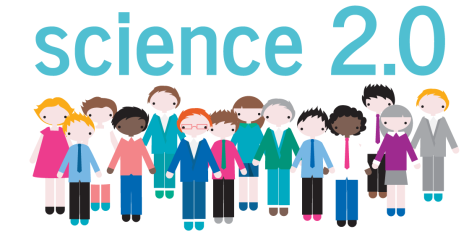This page was used during the Annual PhD Day of the Behavioural Science Institute of the Radboud University.
Thank you all so much for your feedback and discussions, I really enjoyed it and intend to come back to your ‘yes, but..’ responses.
polls
So, what do you think? Make your voice heard and participate in today’s polls.
Okay, wait one bit before answering the next question. You might not yet know what a scientist 2.0 is, let alone if it applies to you.
Yes but!
You know you have thought this at least once during this presentation. Yes… that’s all nice and interesting, but…!
Now is your change to say what you think and ventilate all of your yes.. but..!-s. Just post it in a response to this blog post below.


How do I prevent the ‘2.0’ winning it from the ‘scientist’ (think of self-claimed experts who are good in the 2.0 part but are not real scientists)
Is an Open access publication even valuable as ‘regular’ publications?
Sharing results early before peer review can be dangerous (roos vonk).
How to translate more fundamental research in an interesting way?
It seems very time intensive.
Time limits
Is it always good if the broad public knows everything?
overload of information
If you share your data, before publishing it , others might publish your data before you did.
I’m concerned about ethics and privacy issues of participants.
More over I think that using open source codes might affect the quality of research a lot since not all codes are transparent enough. Or their development is not theoretically grounded.
Waar moet ik de tijd vandaan halen om dat te doen?
Yes, but …. It is really a socially aware idea in a system that is geared towards performing and publishing. Change has to start somewhere, but you will maybe torpedo the chances you have in the academic world. Would be the cynical view…
I am not sure whether I could convince my supervisors to make use of open science.
Also articles published wit open access might not be valued as much as articles published in traditional journals by other researchers (and potential employers)
It’s wise to be silent and keep ur privacy aswell, so do not always share everything on the internet/socialmedia. Think about roosje vonk and her schaliegastweet…
we promise to be careful with the personal data we collect from participants, we cannot just put that online!
Nice the topic of open access, sharing ideas, sharing knowledge and even sharing data.
But what if you work with children or vulnarable people. You promiss them anonimity and confidentiallity. Even if you replace names with id-codes it wont be difficult to trace down the participants. Participant may even recognize themselves. How to deal with this?
I would love all my papers to be open access, but I don’ t have the budget to pay the publication fees.
I do not trust open access
The biggest problem in my opinion is quality control. You can post your results without peer review. You can post anything.
The advantage of more people on the planet is that we can specialize more. I don’t want to be randomly stumbling upon interesting blogs or tweets. The advantage of journals is that I don’t have to Google around to find relevant research. We have enough people who want to write blogs and tweet all day. Let them do that and me specialize on research. I don’t want top be a researcher 2.0 but I want to work in a research group 2.0.